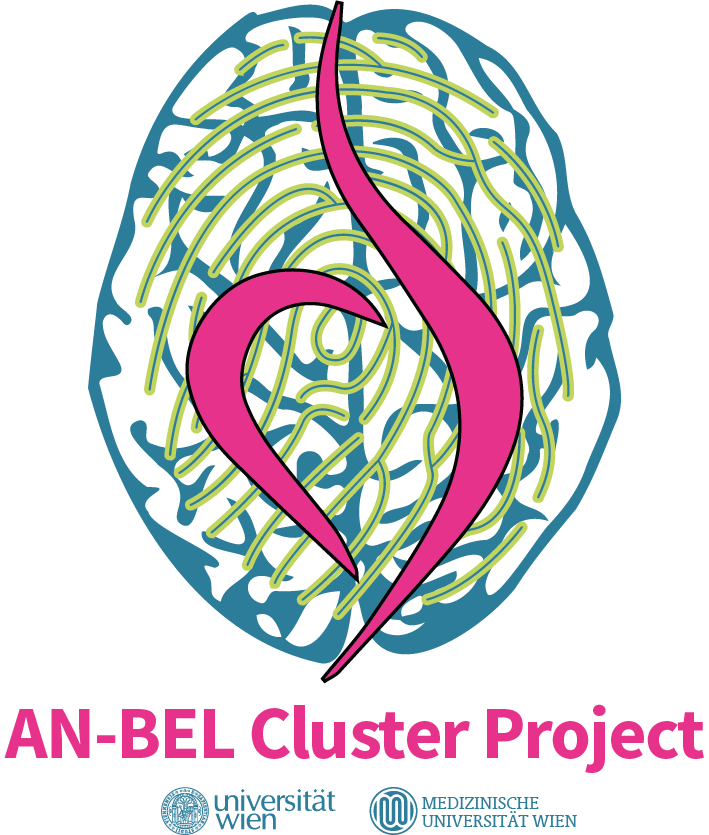A reward-based mechanistic model of Anorexia Nervosa in the human brain
We investigate the neural and behavioral underpinning of reward processing (social vs non-social/food reward) in adolescents with Anorexia Nervosa (AN), using fMRI and EMG techniques as well as clinical assessment and behavioural tasks.
Research project link here
Contact: Research team
For more information, if you are interested in joining the study:

Online Registration Form
If you have read the participant information carefully (and have your parents' consent if you are under 18), you can register using our online registration form. A member of our team will then contact you by email and clarify everything else with you. You can find more information in German and the online registration form here.
Why taking part in scientific studies matters
Imagine you are a psychologist, and you have a new idea about how a certain disorder works. You have read a lot of books and papers, done some theoretical research, and come up with a convincing hypothesis of how a certain disorder works, or how people that suffer from a condition may be helped effectively.
Your friends and immediate colleagues think it a good idea, they also work on a similar topic an know the literature you have studied. But people in other research groups, and most importantly psychotherapists and psychiatrists, have no idea who you are and why your thoughts and ideas matter. They also have not read the same information as you have, and therefore, even after you explain your idea, they are not convinced that your hypothesis has merit. And maybe they are right. After all, what you present is just a likely conclusion, but you have no proof. Quite frustrating, since, if you are actually right, your idea could benefit hundreds, if not thousands, and could inspire even more useful research.
This is a situation we, researchers in the field of psychology, often face. But – no need to despair! To make sure our ideas are correct and convincing to others, such as healthcare providers, and governments, we are trained to design informative and convincing research projects. Large parts of the psychology undergraduate and graduate studies are devoted to us learning how to conduct good research, follow the best scientific practices, and design experiments with the maximum of information gain, at no detriment to the population or patients we study. Before we are allowed to run a study with real live participants, we need to convince an ethics board that our study merits whatever discomfort we may put participants through. Sometimes, this discomfort is just the time that you put into taking part. Usually, you even get some monetary compensation for your time and effort. Sometimes, our research can involve confronting you with a topic that you are not particularly keen on. In those cases, you will be informed beforehand, so that if you consent in taking part, you know exactly what you are consenting to. You can stop anytime, and you do not have to give the experimenter any reason for this, and do not have to feel bad for stopping, even if you think your reason may be silly.
Importantly, to successfully perform our research, we are truly dependent on motivated participants that gift us their time. Some ideas and hypotheses we have can be investigated with any kind of study population. Some other ideas require us to investigate them in very specific groups, such as individuals with some kind of condition. These studies are particularly difficult to perform, but also that much more important. Thankfully, psychologic, psychiatric, and other conditions do not happen to everyone. However, this also means that if we want to study these disorders, it is harder for us to find enough people to take part in our studies. If you yourself or someone you know suffers from a condition, it may be worthwhile looking into research projects in your county or city that are looking for participants. Even if you are not eligible, or decide against taking part, sharing our calls for participants is really important and useful. Not just for us, as researchers performing the work, but especially for people suffering from these conditions and disorders. Your or your friend’s participation could literally save a life down the line.
The AN-BEL research project is researching anorexia nervosa, an eating disorder that affects 4 million people worldwide1, and about 10000 in Austria alone. Anorexia nervosa is fatal if not treated properly. Please help us by sharing our participation calls, or taking part yourself.
Alexandrina Guran, for the AN-BEL research project
1 https://ourworldindata.org/grapher/anorexia-bulimia-nervosa-estimated-cases?time=2019
